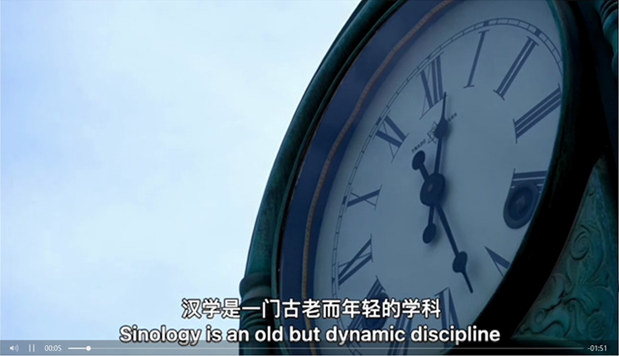Understanding China:The New Relevance of Sinologies
In the West, civilizational differences since the Tower of Babel may have caused further “difficulty in comprehension,” whereas in China it has long been realized that the same object may produce different perceptions. In “The Autumn Floods” chapter of Zhuangzi , Zhuangzi remarks “If we call those great which are greater than others, there is nothing that is not great, and in the same way there is nothing that is not small.” (trans. Legge, The Sacred Books of the East , 1891) Su Shi also laments “If you think of it from the point of view of changing, then? Heaven and Earth have never been able to stay as they are even for the blink of an eye. But if you think of it from the point of view of not changing, then neither the self nor other things ever come to an end.” (Stephen Owen, An Anthology of Chinese Literature , 1996) After all, it is the shared desire of all human beings to seek understanding across differences.
“Understanding” has been an underlying theme of the past six World Conferences on Sinologies - “Dialogue of Civilizations and a Harmonious World” (2007), “Sinology and Cross-cultural Communication” (2009), “Sinology and the World Today” (2012), “Exchange and Learning between East and West: 400 Years in Retrospect” (2014), “Sinologies in Comparative Context: Tradition and Innovation” (2016), and “Understanding China: Inclusive Sinologies and Diverse Civilizations” (2018)—.
The Conference this year seeks to understand China a step further through the discovery of new relevance in Sinologies, while this new understanding in turn leads to the discovery of new relevance. The conference consists of five panels: Translation and Conversation Dialogue in Sinology; Sinological Traditions and Modern Transitions; Sinologies and Interdisciplinary Research/Scholarship; Developing Sinologies and Fostering Scholars; Overseas Sinologies and Chinese Scholarship.
Since the last conference in 2018, the world has faced serious challenges: the pandemic ravaging the globe, regional conflicts continuously emerging due to rising geopolitical tension and competition. How the humanities should respond to these challenges and demonstrate relevance in the new era has become a common concern for scholars in China and abroad. The situation is the same for Sinologies, or China Studies, while their unique perspectives that cross languages, cultures, time, and disciplines enables Sinologies to generate new interpretations of the tradition, and these new meanings attest their relevance to contemporary issues.
Sinologists frequently return to Italo Calvino’s well-known saying, “A classic is a book that has never finished saying what it has to say:” so the “new relevance of sinology” proves a deep repository of possibilities.
The new relevance of Sinologies lies in the fact that Sinologies no longer limit themselves to classical wisdom and texts, but have been transformed into comprehensive China Studies. The Chinese tradition has been examined from political, economic, social, cultural, technological, historical, and contemporary perspectives, and the tradition also serves as a mirror for contemporary reality.
The new relevance of Sinologies is built upon the fact that Sinologies not only invite the world to understand China, but also enable China to understand the world. Understanding is always accompanied by misunderstanding, and Sinology studies make listening to each other and respecting difference the essential foundation of cross-cultural dialogues. Dialogue is impossible without exchange (dia-logue, “through words”); mutual reflection is impossible without the engagement of two parties.
The new relevance of Sinologies is still more about the vitality of Sinologies in the contemporary world. Sinologies act as witness to the recreation and renovation of traditional wisdom, and anticipate a self-renewing, plural discipline. “Harmony is generative; sameness stifles vitality.” Interdisciplinarity, interculturality, and the tension between the past and the present are intrinsic to sinology, enabling it to embrace different voices and unlimited possibilities. We are happy to see Sinologies upholding a spirit of reflection, enabling it to become an exemplar of cross-cultural mutual understanding.
“Friendship knows no distance; a thousand miles is but a heartbeat away.” Our mutual concerns, passion and vision bring hearts and minds together over mountains and across the seas. To the west of Suzhou city by the lake shore, the moon will be clear and the skies bright. We hope that we may gather for the 7th World Sinology Conference as friends, as we engage in incisive discussions and profound debate on the relevance of Sinologies today.
